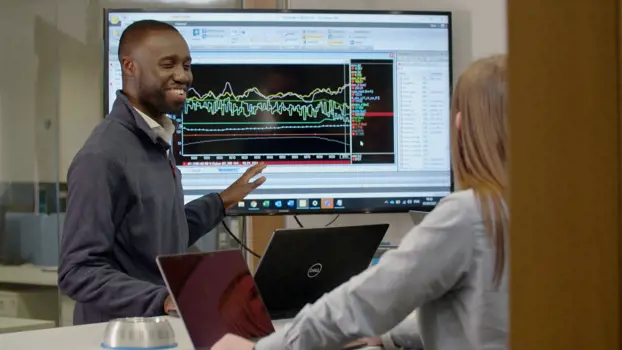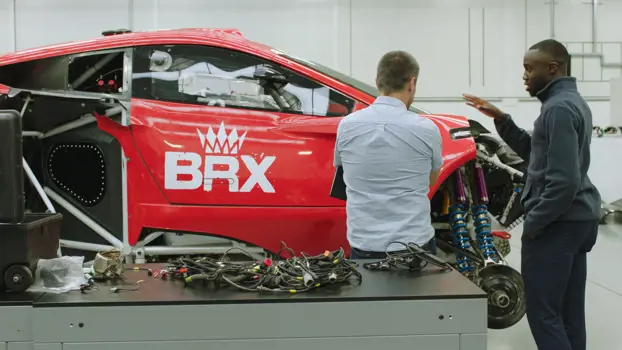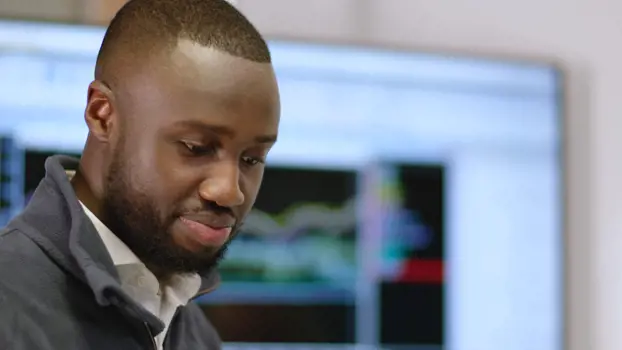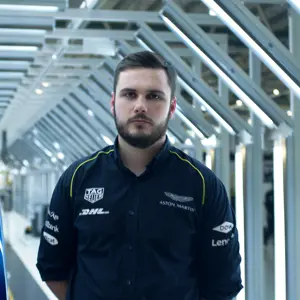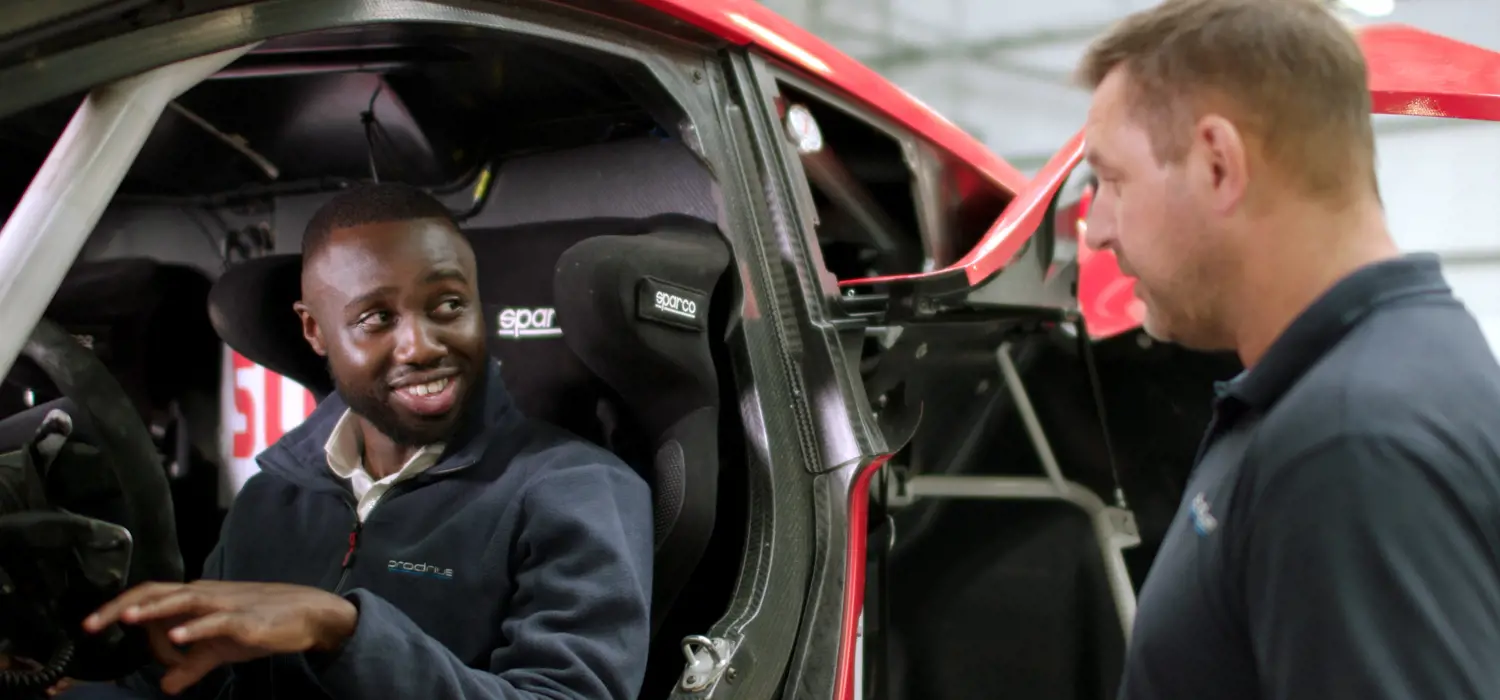
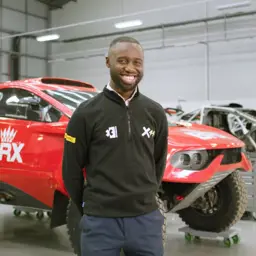
George Imafidon
Racecar Reinventor
I grew up fixing bikes and racing go-karts, always loving a competition and seeing how fast I could go. Now I design Extreme-E race cars with Sir Lewis Hamilton’s electric racing team, making race cars faster, better, and more sustainable.
How I become a Performance Engineer
I grew up in Peckham and we couldn’t afford a bike so I used to fix other people’s bikes for free in my mum’s garden. I was fascinated with the gears and making things work better, even from the age of 8. Bikes, go-karts, minimotos, I loved them all and eventually got my own moped. I loved racing anything with wheels and decided that if I couldn’t be inside the car, I wanted to be the one outside designing it, and making the vehicle a winner.
I didn’t fully know what engineering was – I used to confuse it with being a mechanic. I was choosing between studying motor mechanics and engineering and my brother told me engineering would give me more options. He was right! I studied engineering at GCSE and realised it was more than fixing things, it was building them and coming up with new ideas.
I studied mechanical engineering at University College London and took part in Formula Student - an engineering competition that gives you real world experience in the motorsport industry
Now I’m a performance engineer with Prodrive and work with Hamilton’s X44 Extreme E race team. We bring electric racing to some of the most remote corners of the planet to highlight the climate change challenges faced by different ecosystems.
Factfile
- Role
- Performance engineer with X44
- Favourite part of engineering
- I love mechanical engineering because it is so broad and involves so many areas. I get to learn about software, electronics, materials, even civil engineering.
- Qualification path
- GCSEs, A levels, degree in Mechanical Engineering and Programming
Why mechanical engineering?
I didn’t fully know what engineering was – I used to confuse it with being a mechanic. I was choosing between studying motor mechanics and engineering and my brother told me engineering would give me more options. He was right! I studied engineering at GCSE and realised it was more than fixing things, it was building them and coming up with new ideas.
I love mechanical engineering because it is so broad and involves so many areas. I get to learn about software, electronics, materials, even civil engineering. And mechanical engineering involves anything that moves. So yes, that’s cars and bikes, but it’s also limbs and eyes. Mechanical engineers invent prosthetic limbs and artificial organs, helping people with disabilities or chronic illnesses, shaping their lives for the better.
Your day to day
I can go from racing one of our electric race cars in Greenland and doing data analysis, writing reports, to doing driver coaching to improve their confidence and tell them which corners are going to give them the most performance from the car. The following week, I might be writing a paper to shape policy for future technologies. For example, how can we get more hydrogen cars built; or how can we get more sustainable fuels in cars? Or it can be delivering programmes for young people like Prospering Peckham, or helping people get jobs – it varies quite a bit.
"I design Extreme-E race cars with Sir Lewis Hamilton’s electric racing team, making race cars faster, better, and more sustainable"
— George Imafidon - Performance engineer
A piece of advice
My biggest piece of advice would be to get some skin in the game. I like to say that, because a lot of times, we don’t take too much risk. I’ve realised most of the things that I’m proud of have come from taking a risk, whether it was starting Motivez, interning at Rolls-Royce, or joining Formula Student.
Performance engineering is a broad career path with many options to get involved and get qualified. The diagram below shows some key stage of becoming an engineer.
Career timeline
GCSEs
Kingsdale Foundation School
A levels
Richmond Upon Thames College
University
Mechanical Engineering and Programming degree at University College London
Co-founded Motivez
Motivez helps young people level up and secure STEM jobs
Current role
Performance Engineer at Team X44
Think engineering could be for you?
Become an engineer
